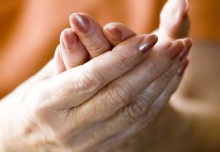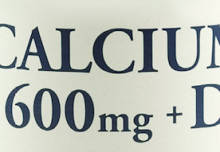Ever have a dry mouth? It could be a sign of osteoporosis. The journal Menopause published a study showing that women in menopause who have a dry mouth are at increased risk of low calcium and osteoporosis (brittle bones}.
First the doctors eliminated medical reasons for a dry mouth such as:
- Medication (an antihistamine, diuretic or medicine for urinary incontinence)
- Conditions such as Sjogren’s syndrome (includes dry eyes and dry mouth)
- Damage to the salivary glands from surgery, medical treatment or radiation
- Excessive sweating or too little water intake (you need 8-12 glasses/day)
- Smoking
- Nerve damage from head and neck injury or surgery
- Dehydration from excessive exercise, fever, burns or diarrhea
Then they tested the saliva. Women with none of the reasons above for a dry mouth had more calcium, more of the adrenal hormone cortisol and more parathyroid hormone in their saliva and a high incidence of osteoporosis on their bone density test. Women without a dry mouth had normal levels of calcium, cortisol and parathyroid hormone in their saliva and were less likely to have osteoporosis.
If you are in menopause and answer ‘yes’ to three or more of the questions below, ask your doctor about a bone density test to find out if you have osteoporosis or brittle bones. There are many medications to treat thin bones or brittle bones to help prevent hip fracture.
Dry Mouth Questionnaire
- Does your mouth feel dry when eating a meal?
- Do you have difficulty swallowing any foods?
- Do you need to sip liquids to aid in swallowing dry foods?
- Does the amount of saliva in your mouth seem to be reduced most of the time?
- Does your mouth feel dry at night or on awakening?
- Does your mouth feel dry during the daytime”?
- Do you chew gum or use candy to relieve oral dryness?
- Do you usually wake up thirsty at night?
- Do you have problems in tasting food?
- Does your tongue burn?




